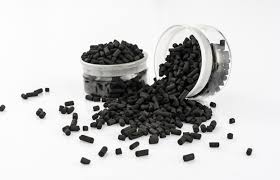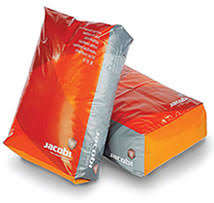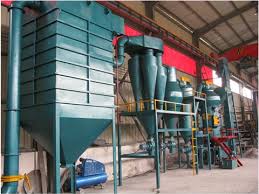![]()
If you’ve landed on this article page, you’re probably searching for a
good business idea—an idea that’s light on the pocket but heavy on
returns, promising both a fulfilling journey and potential profit.
|
How
To Start A Lucrative Activated Carbon Production and Supply
Business In Nigeria
Activated carbon is a highly versatile and widely used adsorbent
material with various applications in industries such as water
treatment, air purification, food and beverage processing,
pharmaceuticals, and more. The production and supply of
activated carbon play a crucial role in meeting the growing
demand for environmental solutions and purification processes.
In Nigeria, the demand for activated carbon is driven by the
need for clean drinking water, wastewater treatment, and air
pollution control. The country has witnessed a rise in
industrial activities, urbanization, and growing awareness about
environmental pollution, creating a favorable market for
activated carbon products.
The setup period of an activated carbon production and supply
business varies depending on factors like production scale,
market demand, and operational efficiency. It typically takes
several months to establish production facilities, optimize
processes, and build a customer base. Over time, as the business
gains traction, it reaches a point of stability and
profitability.
Types Of Activated Carbon Production and Supply Businesses In
Nigeria
Raw Material Supplier: This type of business focuses on sourcing
and supplying raw materials required for activated carbon
production, such as coconut shells, wood, or agricultural waste.
They establish partnerships with farmers, waste management
companies, or forestry organizations to ensure a steady supply
of raw materials to activated carbon manufacturers.
Manufacturing Plant: Activated carbon manufacturing plants
produce activated carbon through processes like carbonization,
activation, and purification. These plants require advanced
equipment, skilled labor, and adherence to quality standards.
They play a crucial role in producing activated carbon products
for various industries.
Activated Carbon Supplier: This business involves the production
and supply of activated carbon products to different industries,
including water treatment, air purification, pharmaceuticals,
and food processing. Activated carbon suppliers need to have a
diverse product portfolio, quality control measures, and
efficient distribution networks to cater to the specific needs
of customers.
Activated Carbon Equipment Supplier: This type of business
focuses on supplying equipment and machinery used in activated
carbon production, such as carbonization kilns, activation
furnaces, and purification systems. They work closely with
manufacturers to provide high-quality equipment and offer
technical support and maintenance services.
Activated Carbon Research and Development: Research and
development-focused businesses work on developing new
technologies, formulations, and applications for activated
carbon. They collaborate with research institutions,
universities, and industry partners to drive innovation in the
activated carbon industry.
Activated Carbon Consultancy Services: Consulting firms
specializing in activated carbon provide technical expertise,
market analysis, and advisory services to businesses in the
industry. They assist in market research, feasibility studies,
process optimization, and quality management, helping businesses
make informed decisions.
Activated Carbon Recycling and Regeneration: Recycling and
regeneration businesses focus on collecting used activated
carbon from various industries, regenerating it through thermal
or chemical processes, and supplying regenerated activated
carbon to industries that can reuse it. This business helps
reduce waste and promotes sustainability.
Activated Carbon Testing and Certification: Testing and
certification services for activated carbon ensure compliance
with quality standards and customer requirements. These
businesses perform adsorption testing, quality analysis, and
issue certifications to validate the performance and reliability
of activated carbon products.
Powdered Activated Carbon (PAC): Powdered activated carbon is a
fine powder with a particle size typically less than 200 mesh
(74 microns). PAC is commonly used in water treatment
applications, such as adsorption of organic contaminants, taste
and odor removal, and color removal. It has a high adsorption
capacity due to its large surface area and is often preferred
for batch processes and small-scale applications.
Granular Activated Carbon (GAC): Granular activated carbon
consists of larger particles with sizes ranging from 0.2 to 5
mm. GAC is widely used in water and air treatment applications
due to its excellent adsorption properties. It is commonly
employed in fixed-bed adsorption systems, such as activated
carbon filters, where water or air passes through a bed of GAC
to remove contaminants.
Extruded Activated Carbon (EAC): Extruded activated carbon is
produced by mixing activated carbon powder with binders and
extruding the mixture into cylindrical or pellet-shaped forms.
EAC has higher mechanical strength compared to PAC and GAC,
making it suitable for applications where abrasion resistance
and low dust generation are important, such as gas phase
adsorption and catalyst support.
Acid-Washed Activated Carbon: Acid washing is a post-treatment
process that involves treating activated carbon with acid to
remove impurities, such as residual ash or metal contaminants.
Acid-washed activated carbon exhibits improved purity and
reduced ash content, making it suitable for applications that
require high-quality activated carbon with low impurity levels.
Coconut Shell Activated Carbon: Activated carbon produced from
coconut shells is a popular choice due to the abundance of
coconut resources in Nigeria and Africa. Coconut shell-based
activated carbon offers excellent adsorption properties, high
hardness, and resistance to attrition. It is widely used in
water treatment, air purification, and gold recovery
applications.
Wood-Based Activated Carbon: Wood-based activated carbon is
derived from various wood sources, such as bamboo, sawdust, or
wood chips. It is commonly used in gas-phase applications,
including air purification and gas purification in industries
like pharmaceuticals and chemicals. Wood-based activated carbon
offers good adsorption capacity and can be customized based on
the specific requirements of different industries.
Nutshell Activated Carbon: Nutshell activated carbon is produced
from the shells of nuts, such as walnut, almond, or pecan
shells. These activated carbons exhibit favorable adsorption
properties and are utilized in applications like water
treatment, air purification, and removal of specific organic
contaminants.
Source of raw material: the raw material for the production of
activated carbon is charcoal. Sawdust, lignite and other
carbonaceous materials can also be used as raw materials.
Lignite is available in North Gonder, North Wollo and North
Shewa of the Amhara Region.
By understanding the market dynamics, targeting the right
customers, and implementing effective marketing strategies,
businesses can establish a strong presence in the activated
carbon industry. Additionally, investing in research and
development, adopting advanced production methods, and ensuring
quality control will help maintain a competitive edge.
Get our training guide
on Activated Carbon production. Our Complete guide was carried
out with a
comprehensive studies backed up with effective marketing
strategies The machines and equipment are locally available and
details information will be given to prospective investors. We
provide you with a quick-start solution, complete hands-on
training and support! It is an affordable opportunity for
everyone who wants a fast return of investment! Proven to
generate income right away!
|







